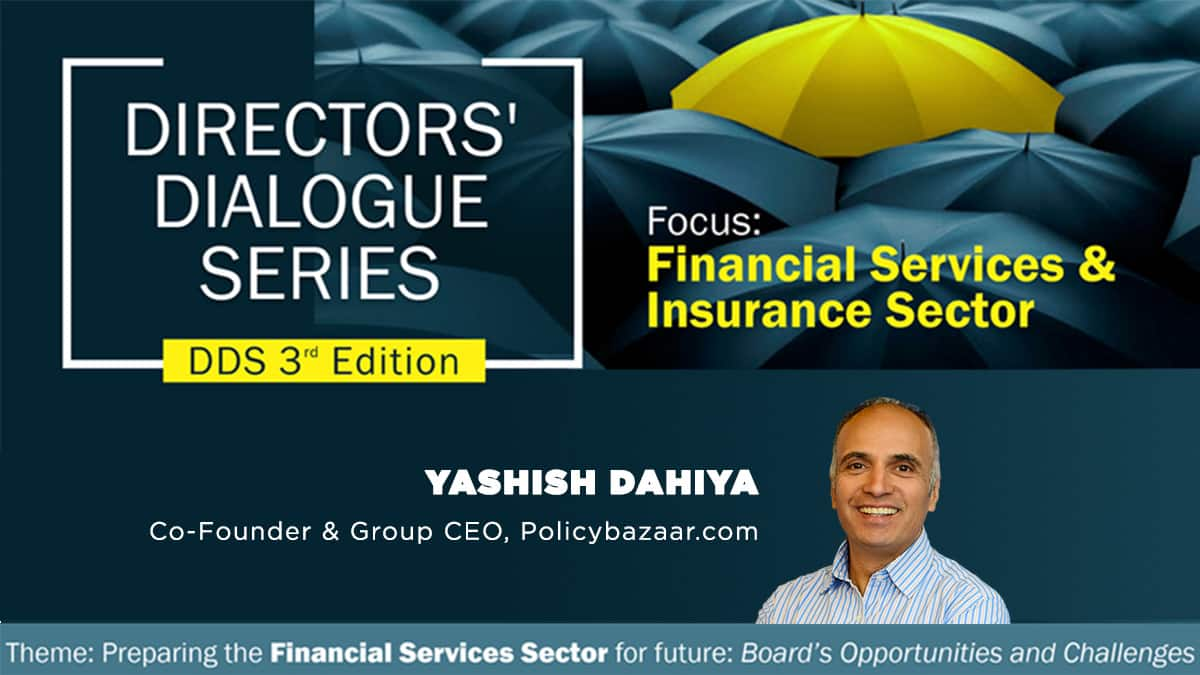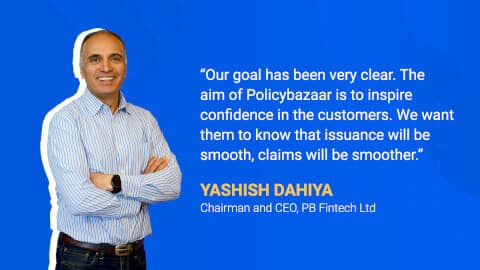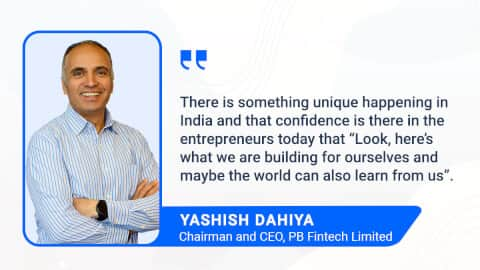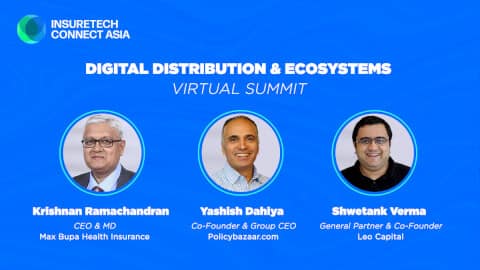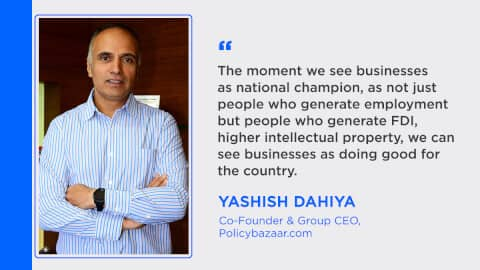1
Feeling Inadequately Insured? 3 Ways To Extend Your Health Insurance CoverLeader Speak
Collaboration is the way forward to make insurance accessible to all, says Yashish Dahiya
Insurance penetration in India is one of the lowest across the world. The industry has put a lot of effort into raising awareness about insurance and the need for protection products, but there is a bigger need for collaboration that can make insurance accessible to all.
“There's a huge task to cover half a billion people in poverty by the government. The middle class has the means to cover themselves but they need to be convinced. The insurance industry needs to have incentives to be able to do so because it's a massive action which will require the entire industry to come together with government support,” said Yashish Dahiya at the 3rd edition of Directors Dialogue Series organized by the Institute of Directors on the theme- ‘Preparing the financial services sector for future’.
“This area gets lost from an overall viewpoint and this missing middle stays the missing middle,” he added.
((relatedarticle_1))
Other dignitaries who were present at the panel discussion include Mr. Vipin Anand, Managing Director, Life Insurance Corporation of India; Dr. Anup Wadhawan, IAS, Secretary, Department of Commerce, Ministry of Commerce & Industry; Mr. Debashish Panda, Secretary, Department of Financial Services, Ministry of Finance, Mr. Tuhin Kanta Pandey, IAS, Secretary, Department of Investment & Public Asset Management (DIPAM), Ministry of Finance among others.
There are about 70 million Indian families who have an income upwards of Rs 4 lacs but do not have insurance and these middle-class families are commonly called the ‘missing middle.’
“Of these 70 million Indian families, only 10% had health insurance during Covid. These families are referred to as the missing middle because they are not insured. If any of the primary earning member passes away or suffers from a disease, it is a catastrophe because it’s not just the loss of income, it’s also the opportunities and generational loss for them,” added Dahiya.
In the next 10 years, the 70 million Indian middle-class families will become 100-150 families. More and more people will belong to the middle-income group.
“The central problem is that all these years, our investments have been put into sick care and very little has gone into healthcare. For the first time, when such a pandemic happened and the kind of destruction it did in terms of the entire capital of families, we realized the need for insurance,” said Shailesh V. Haribhakti FCA, Chairman - Mumbai Region, IOD, India Board Chairman, Audit Committee Chair & Independent Director on multiple, Boards in India & Chairman, Shailesh Haribhakti & Associates, India.
Haribhakti further added that one nerve that has come to all of us during the pandemic is collaboration.
"Your plea that all of us need to come together to create that vast pool, to create that massive ability to take care of these families which get impaired is passionate and admirable. But the bigger question embedded in your plea is how do we move from sick care to health care. Policybazaar has made the ability to access insurance so democratized that today with access to your site, people can buy the least cost, most effective, best coverage insurance. I am a great admirer of the way you have made insurance accessible through collaboration and sensibly taken by citizens of the country,” said Haribhakti.
National Digital Health mission will instill consumer confidence
According to Yashish Dahiya, steps such as the government’s National Digital Health Mission are going to build consumer confidence in health insurance and further help in increasing penetration.
“My view is that it will build the confidence of consumers in the health insurance industry. With the National Digital Health Mission and the health id coming in, a lot of health data is going to become available. There are large-scale plans happening on the digitization of policies through collaboration. The industry along with tech players and the government are coming together and creating a platform for auto-adjudicated and instantaneous claims," said Dahiya.
National Digital Health Mission aims to bridge the existing gap amongst different stakeholders of the healthcare ecosystem through digital highways. As per the mission, every citizen will have a health id that will store an individual’s medical records, including doctor visits, treatments, prescriptions, drugs taken, etc. This will also be integrated with telemedicine, e-pharmacy, creating a national health registry. From a doctor’s appointment to hospitalization, this id will become essential for everybody.
“This is being done so that when you check out of the hospital, you don't have to deal with claims. It will automatically be done. You don't have to make a claim and fill up a form. The insurer will already know what policy you bought, what's covered and not covered, they will know the hospital bills because your health id will be connected. This entire infrastructure is coming up,” said Dahiya.
According to Dahiya, the National Digital Health mission will pave the way for consumer confidence and trust in health insurance. As confidence will get induced among the consumers, 90% of people will have health insurance. “This is because there is no reason not to buy health insurance. Claims' process is the pain point of consumers and through this mission, claims process will be faster and smoother,” he added.
((newsletter))

